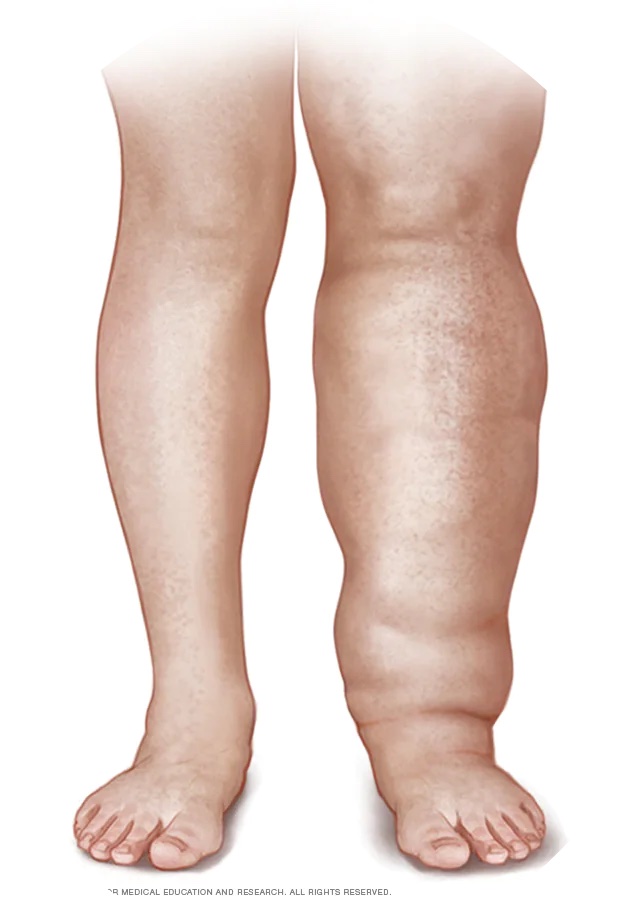Here are some reasons why people get lymphedema and swelling from lymphedema.
- Primary Lymphedema: This type of lymphedema is often caused by a congenital abnormality in the lymphatic system, leading to impaired lymph drainage. It may present at birth or later in life.
- Secondary Lymphedema: This form of lymphedema is more common and occurs because of damage to the lymphatic system, often due to surgery (e.g., lymph node removal during cancer treatment), radiation therapy, infection, injury, or other medical conditions.
- RISK FACTORS for Lymphedema: Certain factors may increase the risk of developing lymphedema, including obesity, cancer treatments (surgery and radiation), chronic venous insufficiency, infections (e.g., cellulitis), and a family history of lymphedema.
- Lymphedema MANAGEMENT AND TREATMENT: While lymphedema cannot be cured, it can be effectively managed. Lymphedema treatment often includes a combination of the following:
- Lymphedema and Compression Therapy: Wearing compression garments or bandages helps reduce swelling and promotes fluid drainage.
- Lymphedema and Manual Lymphatic Drainage (MLD): This specialized massage technique can help move lymph fluid from the affected area to healthy lymph nodes.
- Exercise: Specific exercises, along with regular physical activity, can enhance lymphatic flow and improve overall circulation.
- Lymphedema Skin Care: Proper skincare helps prevent infections and complications associated with lymphedema.
- Lymphedema and Manual Lymphatic Drainage: A comprehensive approach combining various treatments, including MLD, compression, skincare, and exercises, to manage lymphedema effectively.
- Lymphedema and Medications: In some cases, diuretics may be prescribed to reduce fluid retention, but they are not the primary treatment for lymphedema.
- Lymphedema SELF-CARE: Taking an active role in managing lymphedema is crucial. This includes daily self-care practices, such as:
- Maintaining a healthy weight and diet
- Practicing good skincare and hygiene
- Avoiding tight clothing and jewelry that can constrict lymph flow
- Elevating the affected limb whenever possible
- Being cautious with cuts or injuries to avoid infections
- Seeking prompt medical attention if any signs of infection, such as redness, warmth, or increased swelling, occur is essential to prevent complications.
Remember, every individual’s experience with lymphedema can vary, so it’s important to work closely with healthcare professionals, experienced in managing this condition to develop a personalized treatment plan that suits your needs. Early identification and consistent management are essential for optimizing quality of life for those living with lymphedema. It is also important to work with a reliable and efficient compression pump company who will work diligently to get the compression pump and sleeves that’s best suits your condition.
Total Compression Pumps is that company. Please call 800 854-0335. We will gladly answer any questions.



